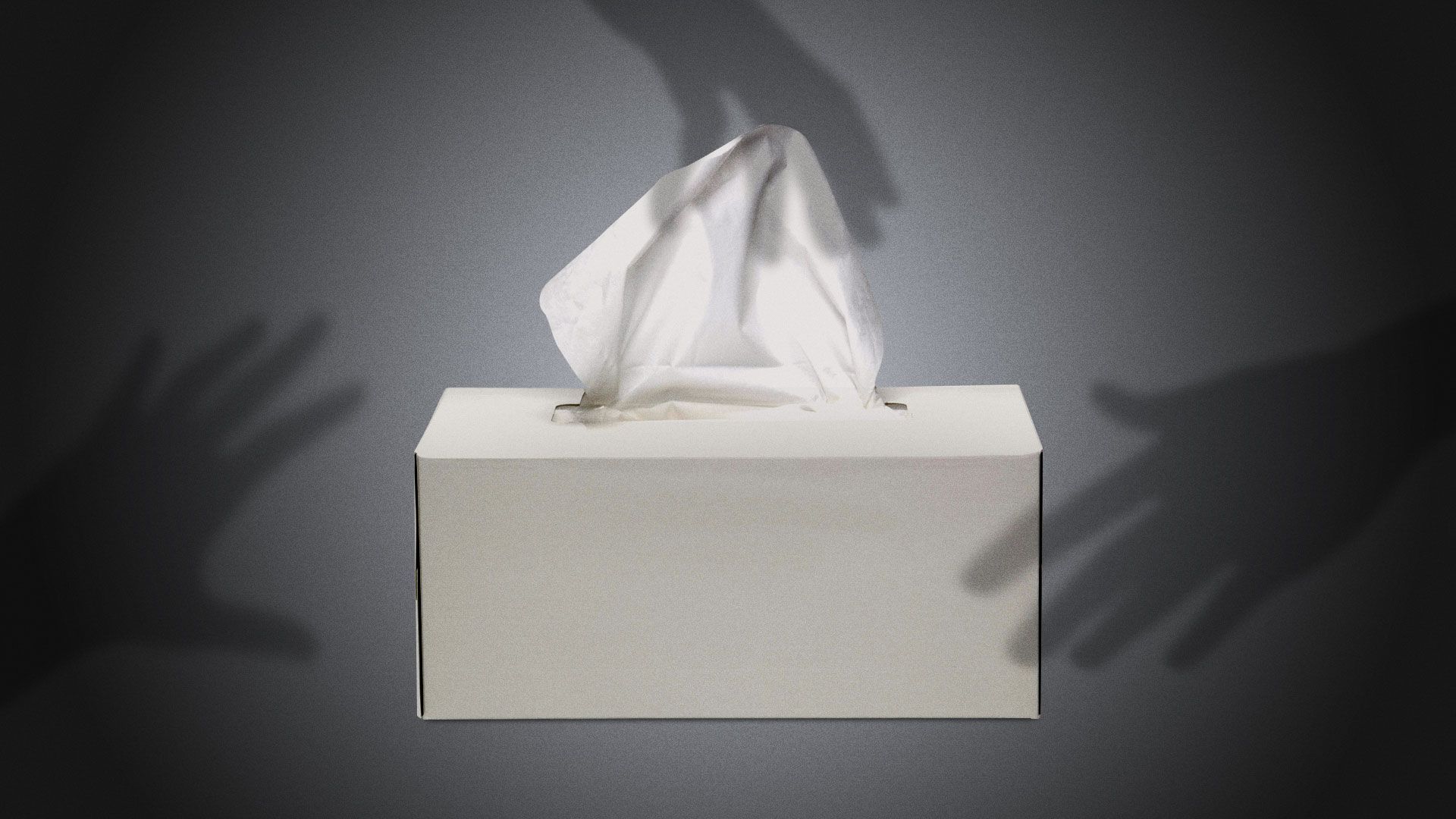Plus, experts say early flu season could mean a bad flu season | Monday, June 07, 2021
| | | | | | | Presented By PhRMA | | | | Vitals | | By Tina Reed ·Jun 07, 2021 | | Welcome back from the weekend and thank you for reading Vitals! This week on Axios on HBO: The roots of the COVID-19 pandemic are still a contentious mystery. Axios' Mike Allen asked Secretary of State Antony Blinken about the U.S. approach toward China on this. Today's word count is 793, or a 3-minute read. | | | | | | 1 big thing: People who wore masks were less likely to get sick |  Data: Axios-Ipsos Coronavirus Index polling data since March 2020; Chart: Will Chase/Axios Turns out that wearing a mask and social distancing really weren't a waste of time, Axios' David Nather reports. Driving the news: Exclusive polling data from our Axios-Ipsos Coronavirus Index, which started in March 2020, shows that the respondents who reported never wearing masks were twice as likely to test positive for COVID as those who said they wore masks all the time. By the numbers: Just 11% of people who reported always wearing masks outside the home tested positive for COVID — compared to 23% of those who said they never wore masks. - People who wore masks all the time got tested more regularly than those who didn't.
Between the lines: When a group of people is getting tested less often than others, but has a higher positive rate, there's a good chance that there are other sick people who are being missed. The pattern was similar for social distancing. Just 10% of people who said they kept a six-foot distance from other people at all times tested positive for COVID, compared to 26% of people who said they never did. - 12% of people who said they sometimes kept a six-foot distance tested positive, as did 20% of those who said they socially distanced occasionally but not often.
- There was less variation in testing rates in this group: 26% of people who always social distanced got tested for COVID, compared to 27% of people who did so sometimes, 28% of those who did so occasionally but not often, and 23% of those who never did.
|     | | | | | | 2. Early flu cases could signal bad season |  | | | Illustration: Eniola Odetunde/Axios | | | | Influenza cases and other common viruses have been at historically low numbers for the past year. But that could change soon, Axios' Marisa Fernandez writes. Driving the news: Experts say the last year and a half, we've largely gone without "boosts" to our adaptive immunity from exposure to viruses, as STAT News reported recently. And if flu cases start to rise in the fall, buckle up. What they're saying: If the U.S. starts seeing an uptick in flu cases in October or November, "that would be a sign that we're going to be in for ... a strong flu season," said Andy Pekosz, professor of Molecular Microbiology and Immunology at the Johns Hopkins Bloomberg School of Public Health. - "You've lost one pathway to immunity, which is natural infection," last flu season, said Ryan Langlois, associate professor in the microbiology and immunology department at the University of Minnesota. "We've never been in this situation."
Go deeper. |     | | | | | | 3. Biogen banks on aducanumab |  Data: Company filings; Chart: Danielle Alberti/Axios Multiple sclerosis drug Tecfidera has propped up Biogen for the past eight years, representing more than a third of the company's sales. But that revenue wave is coming to an end since generic versions of the pill entered the U.S. market last year. Between the lines: Biogen is banking on federal approval of its Alzheimer's drug, aducanumab, to boost its financial future and offset the decline of Tecfidera, Axios' Bob Herman writes. By the numbers: Market analysts estimate Biogen could price aducanumab as high as $50,000 per year of treatment, which independent experts have said is too high considering the clinical trial data don't prove the drug is effective. - Even if only a small portion of the 6 million Alzheimer's patients are able to obtain the drug, Biogen would net billions of dollars in new sales annually.
|     | | | | | | A message from PhRMA | | We are focused on our mission: saving lives | | |  | | | | We're not just talking about vaccines. Manufacturers are working to deliver 11 billion vaccine doses in 2021 alone. We have constructive ways to deliver vaccines, continue to innovate and lower the cost of medicine. That is our focus, day-in and day-out and that work continues. | | | | | | 4. UnitedHealthcare changes ER coverage |  | | | Illustration: Annelise Capossela/Axios | | | | Starting July 1, UnitedHealthcare says it plans to reduce coverage of — or stop paying for — non-emergency trips to the ER. Why it matters: Unnecessary emergency room visits are a major source of wasted spending in U.S. health care. But critics say this policy from the nation's largest health insurer could hurt patients who mistakenly believe they'll be covered. The policy has exceptions, such as for patients who are ultimately admitted and children under 2. - But visits determined to be non-emergencies will require patients to complete an attestation challenging the call.
- This policy comes just a few years after Anthem unveiled a similar policy that faced pushback in 2018.
What they're saying: "The goal here is chilling — so people second guess whether to seek care for their symptoms," tweeted Seth Trueger, an emergency doctor at Northwestern Emergency Medicine. |     | | | | | | 5. While you were weekending... |  | | | CDC principal deputy director Anne Schuchat answers a question during a Senate Appropriations Subcommittee hearing on May 19. Photo: Greg Nash-Pool via Getty Images | | | - The U.S. wasn't prepared to respond to this COVID-19 pandemic and likely isn't prepared for the next one yet, CDC principal deputy director Anne Schuchat said in an interview with NPR's Morning Edition.
- Even though President Biden left the idea of a public option out of his proposed budget, it appears there won't be a lot of pushback from the left, NBC News reports.
- Politico executive health care editor Joanne Kenen detailed her saga of getting fully vaccinated against COVID-19 after having a rare allergic reaction to her first Pfizer shot — and how our health care system is just not set up for exceptions.
|     | | | | | | A message from PhRMA | | We are focused on our mission: saving lives | | |  | | | | We're not just talking about vaccines. Manufacturers are working to deliver 11 billion vaccine doses in 2021 alone. We have constructive ways to deliver vaccines, continue to innovate and lower the cost of medicine. That is our focus, day-in and day-out and that work continues. | | |  | | The tool and templates you need for more engaging team updates. | | | | | | Axios thanks our partners for supporting our newsletters. If you're interested in advertising, learn more here.
Sponsorship has no influence on editorial content. Axios, 3100 Clarendon Blvd, Suite 1300, Arlington VA 22201 | | | You received this email because you signed up for newsletters from Axios.
Change your preferences or unsubscribe here. | | | Was this email forwarded to you?
Sign up now to get Axios in your inbox. | | | | Follow Axios on social media:    | | | | | |









No comments:
Post a Comment